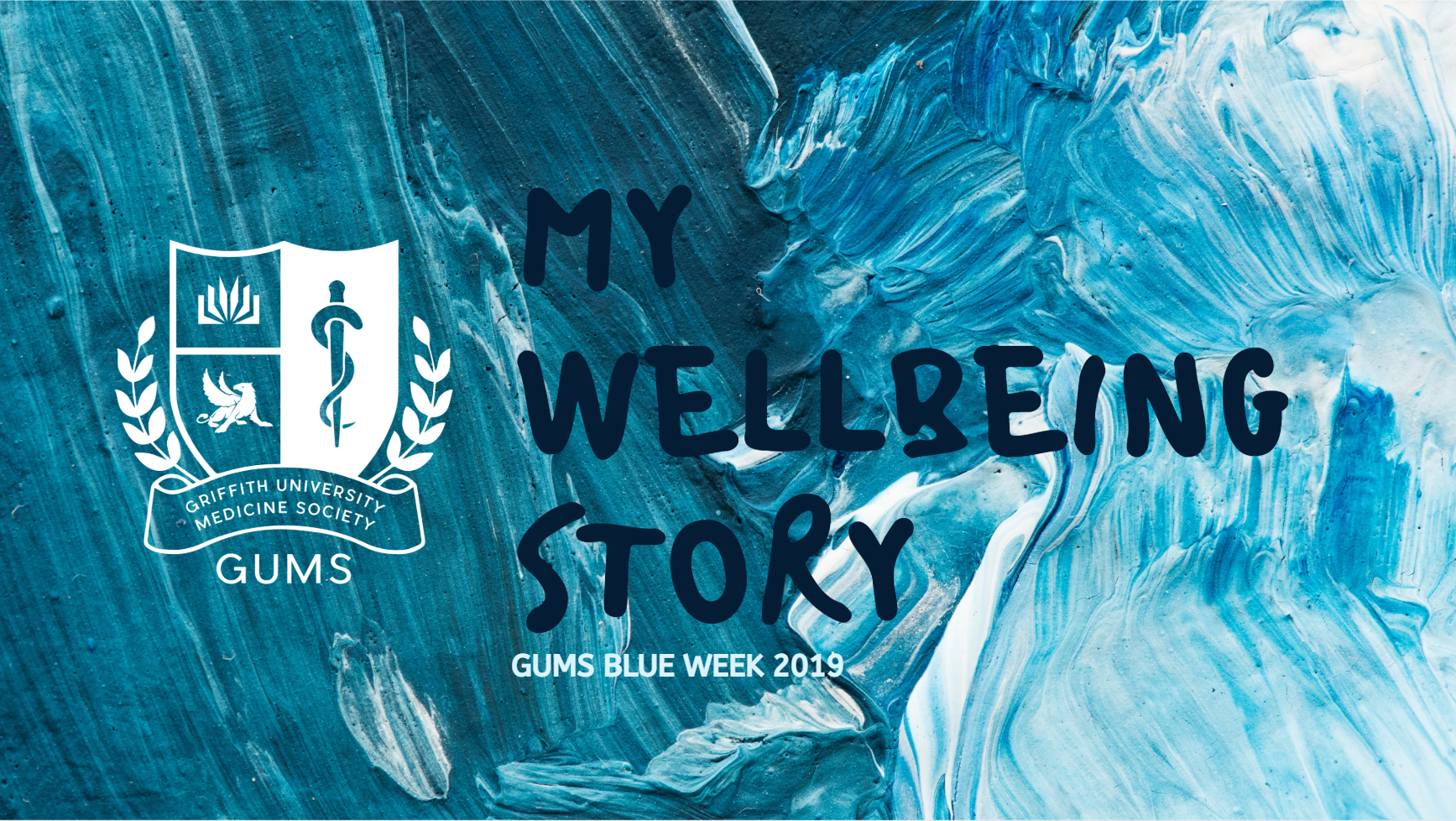
24 Jul My Wellbeing Story: YEAR 2
This Blue Week, we asked people at different stages in their medical career, to share their personal Wellbeing Stories unique to the current context of their medical careers. Through various stages of medicine, we all face our own unique challenges and although it may sometimes feel like we are all alone or the only one struggling, this is often the furthest thing from the truth. Each of us has a Wellbeing Story that describes the challenges we face and how we approach them. Sharing these stories creates a community that is positive, understanding and supportive as we work together to create a healthier environment for health professionals. As you navigate your own challenges, we hope these stories encourage you and empower you to talk and share with others.
If you, or someone you know, needs help please contact:
- Lifeline
- 13 11 14
- Beyondblue
- 1300 22 4636
- Eve De Silva (Griffith University School of Medicine)
Year 2
Second year is filled with a range of challenges- from striking a balance between uni and life to worrying about clinical years ahead. Here are some stories from our second years.
Story 1
Second year is hard. The content is difficult and the timetable is packed. Feeling burnt out and unmotivated to learn has become my reality and I’m no longer excited about going to uni and learning medicine. I thought I would be able to better handle the pressure of second year, so I didn’t see this coming. Apart from feeling demotivated to study and learn, I also found that I was less engaged in PBL. This was something I really enjoyed in first year. Concentrating in lectures has also become a lot more difficult. In first year, and undergrad, I used to study all the time and everything would go into my brain and stick. Now I feel like I go to uni all day, then go home and am so unmotivated to do anything. My internal drive to study and learn has died. I haven’t really worked out how to manage this issue yet, apart from making sure I do give myself enough time doing things other than medicine. Unfortunately, I haven’t noticed a difference yet. However, it has been humbling to realise that I’m not superwoman – I can’t do everything myself, and it’s really important to surround myself with friends and loved ones to help me along the journey.
Story 2
It was quite challenging trying to balance my medical school commitments at the Gold Coast, with my life in Brisbane. I didn’t realise that only having the weekend back in Brisbane would mean that I would have to actively plan out my time. In first year, I struggled with managing my time commitments and it ultimately led to a lot of tension in the relationship that I was in at the time. I also felt a lot more mentally exhausted, and found it hard to come back refreshed after the weekend. I now make more of an effort to plan my social commitments the way I plan out my study. Little things like having a calendar really helped me. Luckily, I also have an amazing group of friends and a wonderful family who are all extremely understanding. Being upfront with my family and friends about my time commitments meant that I could schedule and enjoy the time I spent with all the lovely people in my life. I feel a lot more in control of both the uni and non-uni sides of my life now.
Story 3
After starting medicine, I found my confidence dwindled as I quickly realized that I was no longer the smartest student. I was average and sometimes even below that. It made me reluctant to give everything my 100%. As a result, I became unmotivated and felt inadequate- I didn’t believe I was good enough to be a doctor. After working so hard to receive a place in medical school, I didn’t think that my confidence would drop as much as it has over the last two years. Before medical school, I was good at positive self-talk and self-care in general, so these feelings really snuck up on me. In fact, I felt so overwhelmed by my crippling self-doubt that I neglected study, and often missed out on learning opportunities because of my fears. Over time, I’ve started to change my perspective and do things to boost my confidence. For example, I put more effort into my appearance and I have learnt to accept mistakes and learn from them. It has made me feel a lot better about myself. I’ve stopped listening to the little voice in my head that says I’m not smart enough. In general, my outlook has become more positive, focusing on what I can do instead of what I fear I can’t. I’m sure this will help me to make the most of my time in hospital during placement next year.
Story 4
At this stage of my degree, one of the things I struggle with is balancing uni with life. This includes things like my co-curricular activities. I did foresee that this would be an issue and I found that there were noticeable red flags for when the problem arises. Things like physical tiredness (particularly after sport that usually makes me feel energised), having less time for relaxation and sometimes forgetting to eat lunch due to being preoccupied, were some of the tell-tale signs. In order to manage this problem, I tried to practice saying “no”. I found that doing this enabled me to enjoy more time with my friends.
If you would like to talk to someone about the content of these stories, please message Janis Fernandes (j.fernandes@gums.org.au)

